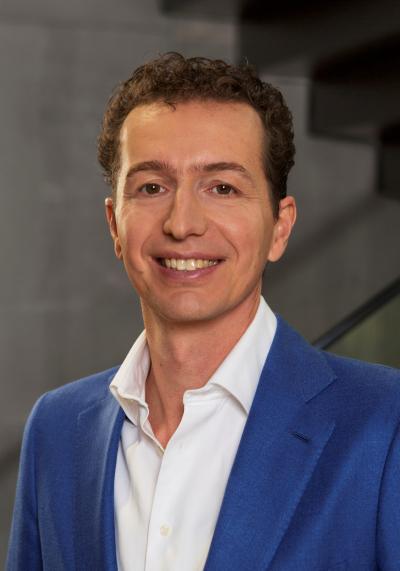While the biotech bull market hasn’t charged back in 2023 as many had hoped, European-focused venture capital firms don’t seem to have had problems bringing in money.
In fact, both Forbion and BioGeneration Ventures announced their largest biopharma funds to date earlier this year. Meanwhile, Germany’s High-Tech Gründerfonds, which invests across life sciences, digital tech and high tech, also saw its largest raise at almost half a billion euros.
So, despite an icy IPO market, is investor interest in European biotechs holding up?
Netherlands and Germany-based Forbion has led the charge, raising a total of 1.35 billion euros ($1.43 billion) in April across two funds aimed at earlier and late-stage life sciences companies, which are mostly based in Europe. The investors ranged from Big Pharma Eli Lilly to Dutch pension funds and Loyola University of Chicago.

Forbion Managing Partner Sander Slootweg told Fierce Biotech that the VC firm took advantage of “increased interest with some of the larger institutional investors, especially in Europe but also increasingly in the U.S.,” who were able to take part in the funds now that they had reached a suitably large size.
“Many, especially European, institutional investors are increasingly focused on not just financial returns but also ESG and impact metrics,” Slootweg said in an interview. “And they now find that with life sciences you can actually make good financial returns and have high impact.”
While the high tide of investment that washed in during the COVID pandemic has receded—along with some more generalist investors—it has left behind a better understanding of biopharma’s potential, which savvy VC firms have been able to capitalize on to fish from a wider pool of limited partners.
“In the past, we could not get a lot of traction with, for instance, pension funds because they were more focused on the traditional economy and maybe some tech plays,” Slootweg said. “But I think COVID and the response by the industry has shown the tremendous importance of our industry, not just in the ability to generate returns, but also the societal returns.”
Netherlands-based BGV was another firm that secured its largest fund to date this year, bringing in 150 million euros ($158 million) in July. The VC, which is focused on early-stage funding for European biopharmas and is a platform partner of Forbion, saw some of the biggest names in pharma like Lilly and Bristol Myers Squibb return for the latest fund.
Announcing the fund, BGV singled out some of its previous success stories, including Belgium-based immunological disease therapy developer Dualyx and London-based eye disease gene therapy developer Complement Therapeutics, which raised 40 million euros ($44 million) and 72 million euros ($80 million), respectively, in funding rounds earlier this year.
Like Forbion, BGV has seen a change in the makeup of investors in the European biotech scene.
“Everyone knows the market has taken quite a bit of a hit and as a result there's a number of, let's say, more optimistic or generalist investors that have taken a step back,” BGV managing partner Oskar Slotboom told Fierce.
“But at the same time, we see there's a number of investors, particularly in the U.S., who are taking a longer view,” Slotboom said. “They see that actually the fundamentals for European biotech are really strong. There's a lot of innovation in Europe.”
One of the investors in BGV’s recent fund was Novo Holdings, which manages the wealth of the Novo Nordisk Foundation and each year invests in the ballpark of half a billion dollars across the U.S. and Europe from its Venture Investment vertical alone. Senior Partner Naveed Siddiqi, who is involved with the European side of the company’s investment strategy, told Fierce that there has been some “good news” when it comes to attracting money for the sector.

“There are still significant funds being raised,” said Siddiqi, who referred to Forbion’s largest-ever fund as “heartening.”
However, while the size of the funds may be reassuring, Siddiqi said he’s aware of some other firms that are finding it harder to hit their targets.
“I think there is a slowdown and it's harder and taking longer for funds to close,” he said. This isn’t surprising given the macro headwinds, he added.
Siddiqi pointed to an analysis of data that Novo Holdings pulled from Pitchbook—and shared with Fierce— which showed that 17 healthcare-related European funds had raised just over $4 billion dollars by August this year. That puts the sector only slightly behind schedule to hit the $8 billion raised across 40 funds for the entirety of 2022, but trailing the COVID-boosted outlier year of 2021, when $11.8 billion was brought in across 78 European funds.
Siddiqi describes the current situation as a “survival of the fittest” where “the bigger firms are getting the capital [to] continue to raise and do well.”
This also applies to biotechs themselves, with drug developers that can attract investors’ interest continuing to find money is plentiful. “I think right now, for the good companies, it's pretty good,” said Siddiqi, referencing the fact that five of the six biotech funding rounds Novo Holdings participated in so far this year were north of $100 million.
Those megarounds included the likes of France's Amolyt Pharma, which secured a $138 million series C to push its hypoparathyroidism drug through phase 3 trials, and Switzerland's Alentis Therapeutics, which bagged a $105 million series C to fund early and mid-stage trials of its anti-Claudin-1 antibodies for tumors and organ fibrosis, respectively.
With the public markets remaining closed for now, large funding rounds are the default way for companies to take on cash.
“We’re seeing a lot of extensions of existing rounds, where basically you get one new investor to come in at the price the last round was done as a flat on the same terms,” Siddiqi said.
The continuing investor interest means that while there has been “some adjustment” of the valuations for privately held European biotechs, they haven’t suffered the “brutal” drop seen by their publicly listed peers who IPOed in the heady days of 2021, he added.
July saw London-based investment firm Medicxi launch a $400 million fund with the stated aim of “backing visionary biopharma entrepreneurs.” The firm’s co-founder and partner Francesco De Rubertis told Fierce that “the environment is good.”
“When the public markets and the macro environment are tougher, that is really when biotech venture capital-led innovation is most prolific,” De Rubertis said.
With the return of Big Pharma M&A this year, “I do think that the sun is coming back up and … investors in the funds are really very present,” he said.
Value for money
While the overall level of funding entering the sector may be plateauing after a few years of dramatic changes, one thing that European biopharmas still have going for them is that they remain good value.
“I would say that the European ones are still about 40-50% cheaper compared to the U.S., which is, from our analysis, simply a function of supply and demand for capital,” Forbion’s Slootweg said. “There's just less capital chasing the deals in Europe.”
“European companies are a bit more conservative in their raises, so they really focus on the 'need-to-have' ... and they don't finance themselves for the ‘nice to have.’” — Sander Slootweg
“The flip side of less capital being available is that, culturally, I think European companies are a bit more conservative in their raises,” Slootweg continued. “So they really focus on the ‘need to have’ to get to the next inflection points, and they don't finance themselves for the ‘nice to have.’”
This can pay off down the road, if investors can ensure their European companies set up a presence on the other side of the Atlantic, where valuations will be raised in line with their better-budgeted U.S. peers.
“At some point, you can help companies to move to the U.S. and maybe pursue a listing—then you unlock the value,” Slootweg explained.
He uses the example of argenx, in which Forbion was an early investor, helping the Belgian-Dutch biotech achieve an “immediate step up” in the company’s valuation in the wake of its dual listing on the Nasdaq in 2017.
The imbalance between biotech valuations in the U.S. and Europe has existed for decades and isn’t likely to change anytime soon “because we are not seeing a very strong influx of U.S. or Asian capital into Europe,” he added.

BGV’s Slotboom agreed that as a result of transatlantic differences, the valuations for earlier-stage biotechs are “significantly lower” in Europe than in the U.S. “The cost of operation in Europe is also significantly lower, particularly compared to some of the popular hubs like Boston and the Bay Area,” he said.
A big part of the attraction of Europe is the level of innovation, according to Medicxi’s De Rubertis, who points out that between a quarter and a third of FDA-approved drugs each year will typically have their origins at a European biotech.
In fact, De Rubertis claims the climate for VC fundraising is actually better in Europe right now.
“In the U.S., the market is much larger so there have been many VCs that have had a lot of difficulties raising capital,” he said. “There's been a concentration of LP capital in Europe … so if you’re a core VC in Europe, you're in a good position.”
Better times ahead?
The firms Fierce Biotech spoke to were generally positive about where European biopharma goes next, despite the persistent headwinds.
“The public markets seem to have stabilized and despite interest rates going up … I think the valuations have held up,” Slootweg said. “The general expectation is that maybe around early next year we might actually see some increased IPO activity.”
But when it comes to the money that European biotechs can get their hands on, Slootweg said Forbion expects the “shortage of capital … will likely continue.”
Meanwhile, De Rubertis said the pessimism he had felt a couple of years ago has slowly turned to optimism. “I do believe that M&A is going to be the trigger for 2024 to be a much more positive year than 2023,” he said.
His only concern is that some of the money already accrued by firms will exceed the number of suitable early-stage biotechs to invest in, leading to the temptation to spread this cash across later-stage drug developers in a less discriminatory way.
“In other words, what I feel is that there will be several later-stage companies that will survive longer than they should,” De Rubertis explained.
Novo Holdings' Siddiqi contrasted the current conditions favorably with the previous two biotech downturns he’s witnessed in his professional career. “We have to acknowledge there is a tough environment but … I don't think it's that tough compared to how bad it's been in the past,” he said.
“European companies have more capital and are more resilient, and the managements are more experienced and able to navigate this better,” Siddiqi added.
Slotboom said that while “people have been a little bit wobbled by what happened in the market,” he expects to see continued interest.
“Ultimately, there's a lot of cash in pharma,” he said. “So I think what we'll see is a robust market.”